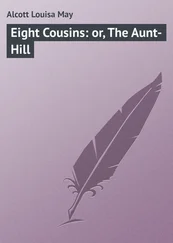Fear shrunk my sinews, and congeal’d my blood.
Mann’d once again, another plant I try:
That other gush’d with the same sanguine dye.
Then, fearing guilt for some offense unknown,
With pray’rs and vows the Dryads I atone,
With all the sisters of the woods, and most
The God of Arms, who rules the Thracian coast,
That they, or he, these omens would avert,
Release our fears, and better signs impart.
Clear’d, as I thought, and fully fix’d at length
To learn the cause, I tugged with all my strength:
I bent my knees against the ground; once more
The violated myrtle ran with gore.
Scarce dare I tell the sequel: from the womb
Of wounded earth, and caverns of the tomb,
A groan, as of a troubled ghost, renew’d
My fright, and then these dreadful words ensued:
‘Why dost thou thus my buried body rend?
O spare the corpse of thy unhappy friend!
Spare to pollute thy pious hands with blood:
The tears distil not from the wounded wood;
But ev’ry drop this living tree contains
Is kindred blood, and ran in Trojan veins.
O fly from this unhospitable shore,
Warn’d by my fate; for I am Polydore!
Here loads of lances, in my blood embrued,
Again shoot upward, by my blood renew’d.’
“My falt’ring tongue and shiv’ring limbs declare
My horror, and in bristles rose my hair.
When Troy with Grecian arms was closely pent,
Old Priam, fearful of the war’s event,
This hapless Polydore to Thracia sent:
Loaded with gold, he sent his darling, far
From noise and tumults, and destructive war,
Committed to the faithless tyrant’s care;
Who, when he saw the pow’r of Troy decline,
Forsook the weaker, with the strong to join;
Broke ev’ry bond of nature and of truth,
And murder’d, for his wealth, the royal youth.
O sacred hunger of pernicious gold!
What bands of faith can impious lucre hold?
Now, when my soul had shaken off her fears,
I call my father and the Trojan peers;
Relate the prodigies of Heav’n, require
What he commands, and their advice desire.
All vote to leave that execrable shore,
Polluted with the blood of Polydore;
But, ere we sail, his fun’ral rites prepare,
Then, to his ghost, a tomb and altars rear.
In mournful pomp the matrons walk the round,
With baleful cypress and blue fillets crown’d,
With eyes dejected, and with hair unbound.
Then bowls of tepid milk and blood we pour,
And thrice invoke the soul of Polydore.
“Now, when the raging storms no longer reign,
But southern gales invite us to the main,
We launch our vessels, with a prosp’rous wind,
And leave the cities and the shores behind.
“An island in th’ Aegaean main appears;
Neptune and wat’ry Doris claim it theirs.
It floated once, till Phoebus fix’d the sides
To rooted earth, and now it braves the tides.
Here, borne by friendly winds, we come ashore,
With needful ease our weary limbs restore,
And the Sun’s temple and his town adore.
“Anius, the priest and king, with laurel crown’d,
His hoary locks with purple fillets bound,
Who saw my sire the Delian shore ascend,
Came forth with eager haste to meet his friend;
Invites him to his palace; and, in sign
Of ancient love, their plighted hands they join.
Then to the temple of the god I went,
And thus, before the shrine, my vows present:
‘Give, O Thymbraeus, give a resting place
To the sad relics of the Trojan race;
A seat secure, a region of their own,
A lasting empire, and a happier town.
Where shall we fix? where shall our labors end?
Whom shall we follow, and what fate attend?
Let not my pray’rs a doubtful answer find;
But in clear auguries unveil thy mind.’
Scarce had I said: he shook the holy ground,
The laurels, and the lofty hills around;
And from the tripos rush’d a bellowing sound.
Prostrate we fell; confess’d the present god,
Who gave this answer from his dark abode:
‘Undaunted youths, go, seek that mother earth
From which your ancestors derive their birth.
The soil that sent you forth, her ancient race
In her old bosom shall again embrace.
Thro’ the wide world th’ Aeneian house shall reign,
And children’s children shall the crown sustain.’
Thus Phoebus did our future fates disclose:
A mighty tumult, mix’d with joy, arose.
“All are concern’d to know what place the god
Assign’d, and where determin’d our abode.
My father, long revolving in his mind
The race and lineage of the Trojan kind,
Thus answer’d their demands: ‘Ye princes, hear
Your pleasing fortune, and dispel your fear.
The fruitful isle of Crete, well known to fame,
Sacred of old to Jove’s imperial name,
In the mid ocean lies, with large command,
And on its plains a hundred cities stand.
Another Ida rises there, and we
From thence derive our Trojan ancestry.
From thence, as ’tis divulg’d by certain fame,
To the Rhoetean shores old Teucrus came;
There fix’d, and there the seat of empire chose,
Ere Ilium and the Trojan tow’rs arose.
In humble vales they built their soft abodes,
Till Cybele, the mother of the gods,
With tinkling cymbals charm’d th’ Idaean woods,
She secret rites and ceremonies taught,
And to the yoke the savage lions brought.
Let us the land which Heav’n appoints, explore;
Appease the winds, and seek the Gnossian shore.
If Jove assists the passage of our fleet,
The third propitious dawn discovers Crete.’
Thus having said, the sacrifices, laid
On smoking altars, to the gods he paid:
A bull, to Neptune an oblation due,
Another bull to bright Apollo slew;
A milk-white ewe, the western winds to please,
And one coal-black, to calm the stormy seas.
Ere this, a flying rumor had been spread
That fierce Idomeneus from Crete was fled,
Expell’d and exil’d; that the coast was free
From foreign or domestic enemy.
“We leave the Delian ports, and put to sea;
By Naxos, fam’d for vintage, make our way;
Then green Donysa pass; and sail in sight
Of Paros’ isle, with marble quarries white.
We pass the scatter’d isles of Cyclades,
That, scarce distinguish’d, seem to stud the seas.
The shouts of sailors double near the shores;
They stretch their canvas, and they ply their oars.
‘All hands aloft! for Crete! for Crete!’ they cry,
And swiftly thro’ the foamy billows fly.
Full on the promis’d land at length we bore,
With joy descending on the Cretan shore.
With eager haste a rising town I frame,
Which from the Trojan Pergamus I name:
The name itself was grateful; I exhort
To found their houses, and erect a fort.
Our ships are haul’d upon the yellow strand;
The youth begin to till the labor’d land;
And I myself new marriages promote,
Give laws, and dwellings I divide by lot;
When rising vapors choke the wholesome air,
And blasts of noisome winds corrupt the year;
The trees devouring caterpillars burn;
Parch’d was the grass, and blighted was the corn:
Nor ’scape the beasts; for Sirius, from on high,
With pestilential heat infects the sky:
My men—some fall, the rest in fevers fry.
Again my father bids me seek the shore
Of sacred Delos, and the god implore,
To learn what end of woes we might expect,
And to what clime our weary course direct.
“’Twas night, when ev’ry creature, void of cares,
Читать дальше












